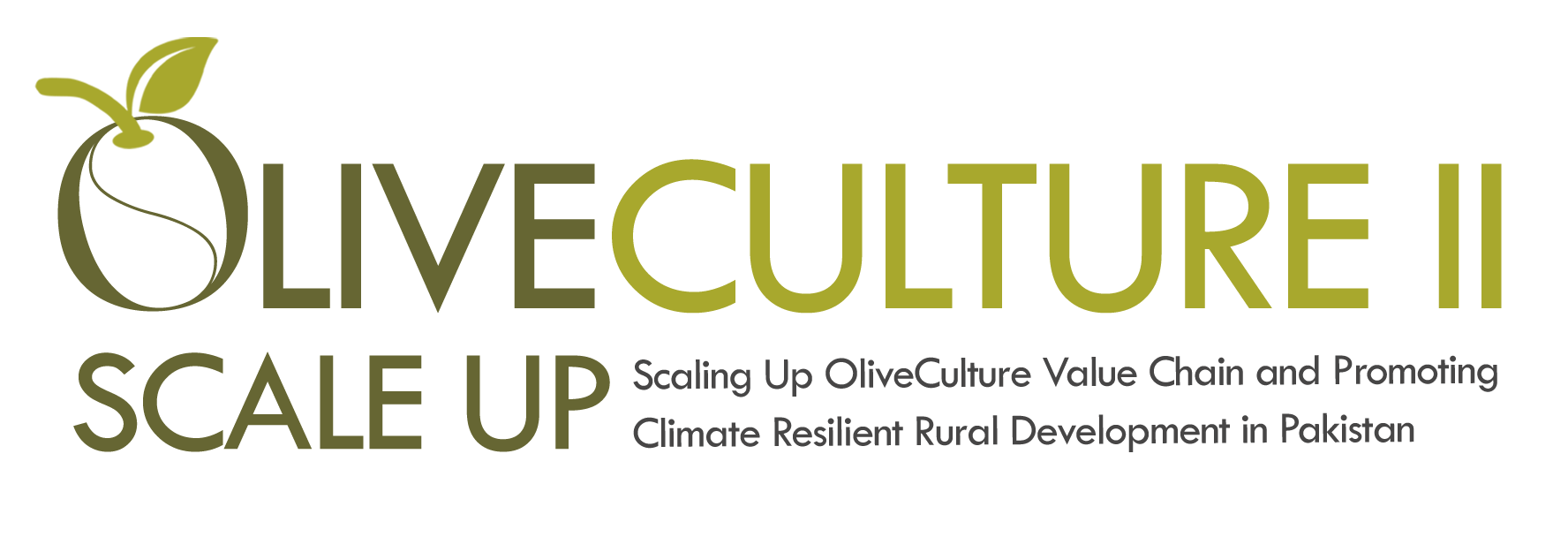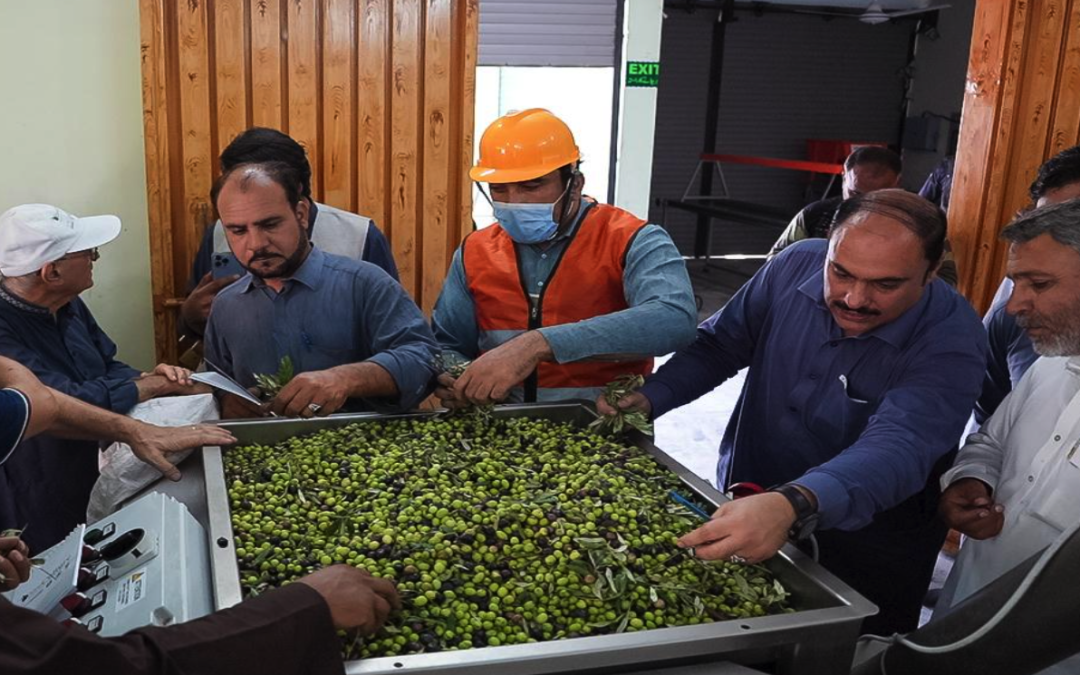Olive oil is a staple in many households around the world, and its popularity continues to grow. The global olive oil market is expected to reach $16.64 billion by 2026, with a compound annual growth rate of 3.7% from 2021 to 2026. Pakistan currently imports edible oil worth USD 3.5 billion per annum, and olive oil imports account for only USD 11 million of this market. Let’s explore the olive oil trade and the global market, with a focus on Pakistan’s olive value chain and OliveCulture project initiatives for olive Industry in Pakistan.
The Global Olive Oil Market
The global olive oil market is driven by factors such as increasing health awareness, rising demand for healthy and organic food products, and growing popularity of Mediterranean cuisine. Europe is the largest consumer of olive oil, with Spain, Italy, and Greece being the major producers and exporters.
The market is segmented by product type, distribution channel, and region. The product types include extra virgin olive oil, virgin olive oil, refined olive oil, and others. The distribution channels include supermarkets and hypermarkets, specialty stores, online channels, and others.
Pakistani Olive Oil Value Chain
In recent years, the olive oil industry in Pakistan has gained significant attention due to its potential to contribute to the country’s economy. The establishment of new olive orchards and the rejuvenation of existing ones in regions like Khyber Pakhtunkhwa, Balochistan, and Punjab have contributed to increased olive oil production, providing economic opportunities for farmers and strengthening the agricultural sector in the countryThe surge in olive cultivation is driven by governmental support and the efforts of organizations like the OliveCulture Project. However, the sector does not have a demand-driven growth strategy, and the thrust of activities is focused on the supply side without conducting a thorough assessment of the domestic and/or export market.
Pakistan currently imports edible oil worth USD 3.5 billion per annum, and olive oil imports account for only USD 11 million of this market. Despite the immense potential of olive cultivation in Pakistan, olive oil has failed to enter the mainstream domestic market due to the nature of local cuisines, which involve high-temperature cooking for which olive oil is not ideal. There is a preference for the more readily available and cheaper palm and soybean oils. However, the country has the potential to produce 1,400 tons of olive oil annually based on current olive plantations, and this figure is expected to continue to rise as more trees are planted. The goal is to plant tens of millions of trees and make Pakistan a relevant olive oil producer in the region.
OliveCulture project in Pakistan
OliveCulture is an Italian funded project that aims to promote sustainable olive farming and production in Pakistan. The OliveCulture provides training and support to olive growers and producers, with a focus on improving quality and increasing olive oil production. OliveCulture also works to raise awareness about the health benefits of olive oil and its importance in Pakistani cuisine. Italian experts from Ciheam Bari is also playing a vital role in training the local farmers and olive grower and transferring knowledge for adopting olive good agronomic practices.
In conclusion, the global olive oil market is growing, and Pakistan has the potential to become a major player in the industry. With initiatives like the PSDP PakOlive & OliveCulture Project. Pakistan’s olive value chain is poised for growth. By promoting sustainable farming practices and improving quality, Pakistan can increase its olive oil production and exports, contributing to the global olive oil trade. Through the efforts of initiatives like the OliveCulture Project, the industry will be progressively engaged in the olive sector, developing Pakistan as a notable player in the global olive oil market.

